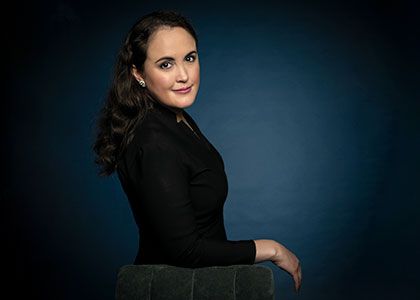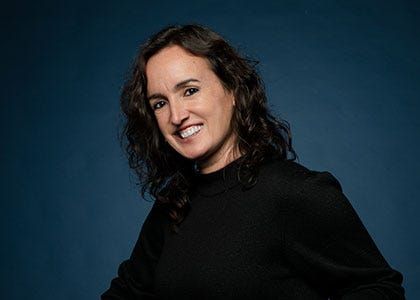La semana que viene Save The Children y la plataforma Defilantropy lanzarán la primera campaña donde los donativos se convierten en token, una criptomoneda derivada, que le dará el control y transparencia a los donadores sobre en qué y cómo se usa su dinero.
Daniel Molano es mitad colombiano y mitad mexicano. Vive mitad del tiempo en Silicon Valley y la mitad del tiempo en la CDMX. Pero es 100% emprendedor digital.
Tiene apenas 34 años y ya fundó 11 startups. “Hace 17 años vendí mi primera empresa. Me fue muy bien económicamente desde muy temprano y en todos los negocios que emprendía. Cada vez tenía más dinero, mucho. A medida que más bienes materiales y superficiales acumulaba, más vacío me sentía. El dinero de verdad no hace la felicidad”, me dice con una enorme sonrisa del otro lado de la pantalla de su computadora, porque encontró hace unos años su Why (ese “propósito” que nos vino a inculcar el famoso Simon Sinek).
En marzo creó con un grupo de amigos una plataforma inédita que permitirá aprovechar el blockchain, ese “gran libro” digital y abierto donde se asientan las operaciones con criptomonedas. La idea es transparentar y aumentar la recaudación de fondos de las organizaciones civiles.
Se llama defilanthropy.org y es una nueva y futurista manera de subir a las asociaciones al meteórico mundo del dinero digital.
“Soy parte del movimiento cripto como una manera de resolver problemas”, agrega Molano, y se suelta con una serie de datos que lo llevaron a terminar creando esta plataforma:
- La gente le ha perdido la confianza a las instituciones, a los gobiernos y a las empresas.
- Las donaciones necesitan un mecanismo que transparente la recaudación y uso de ese dinero.
- Los donativos han caído en todos los países del mundo.
- A las organizaciones les consume 30% de sus recursos conseguir dinero.
- En México 50% de los ingresos por donativos a organizaciones de la sociedad civil se van en gastos administrativos y en búsqueda de esos donativos.
- Las asociaciones civiles están poco profesionalizadas y usan de forma reducida la tecnología para ser más eficientes.
“El gran cambio es la descentralización de las organizaciones y que haya real participación de los donantes en cada causa”, agrega Daniel Molano.
Save The Children México será la primera en usar Defilantrophy para la recaudación de fondos. De hecho es una de las primeras que no ha temido a las monedas digitales y ya desde 2013 recibe cripto donativos.
¿Cómo va a funcionar este nuevo método para procuración de fondos? Por cada 300 pesos que una persona done a Save The Children recibe a cambio seis Dephilanthropy token; los influencers o embajadores de la organización reciben un token y otro token es para la plataforma de recaudación (una empresa tapatía llamada Fondify) que reúne dinero para causas sociales.
“El reto es ‘tokenizar’ a la red completa del donativo”, me explica mientras ve mi cara cada vez más desorientada, “transparentar y dar a los donadores una claridad en el uso de esos recursos que ha donado”.
La intención de esta nueva campaña es duplicar la recaudación (“sólo si le quitamos ese 50% que gastan en administrar de manera casera y de buscar fondos”) y captar más y nuevos donadores.
La meta es entregar en total 3 mil 271 millones de tokens (que equivalen al número de personas en extrema pobreza en el mundo) y captar con ellos 10 millones de dólares en 2022.
“Yo quiero salvar al planeta. Y lo único que les va a dar de comer a los niños y solucionar el cambio climático es el dinero. Este modelo lo que permitirá es maximizar y hacer mucho más eficientes los recursos para lograrlo”, agrega Daniel Molano.
Como buen “cripto evangelizador”, él cree fervientemente en este modelo absolutamente disruptivo que pone a las organizaciones civiles en la era de la web 3.0, y suelta antes de terminar nuestra charla un par de cifras estratosféricas que justifican su optimismo de cambiar el mundo desde un blockchain: 1) entre 2020 y 2021 el flujo de criptomonedas creció 600% en los mercados que opera, 2) hoy todas las criptomonedas en el mercado equivalen a 2.6 trillones de dólares; para poner en contexto, el mercado mundial de bienes raíces está valuado en 4 trillones de dólares, o más cerca, el PIB de México equivale a 1 trillón de dólares.
“Es un movimiento imparable y positivo, lo único que salvará a nuestro planeta”, agrega.
La prueba piloto arranca el lunes y en pocas semanas podremos ver si se convierte en una nueva ola a la que se suban las casi desahuciadas organizaciones de la sociedad civil.
Las opiniones expresadas son responsabilidad de sus autoras y son absolutamente independientes a la postura y línea editorial de Opinión 51.





Comments ()